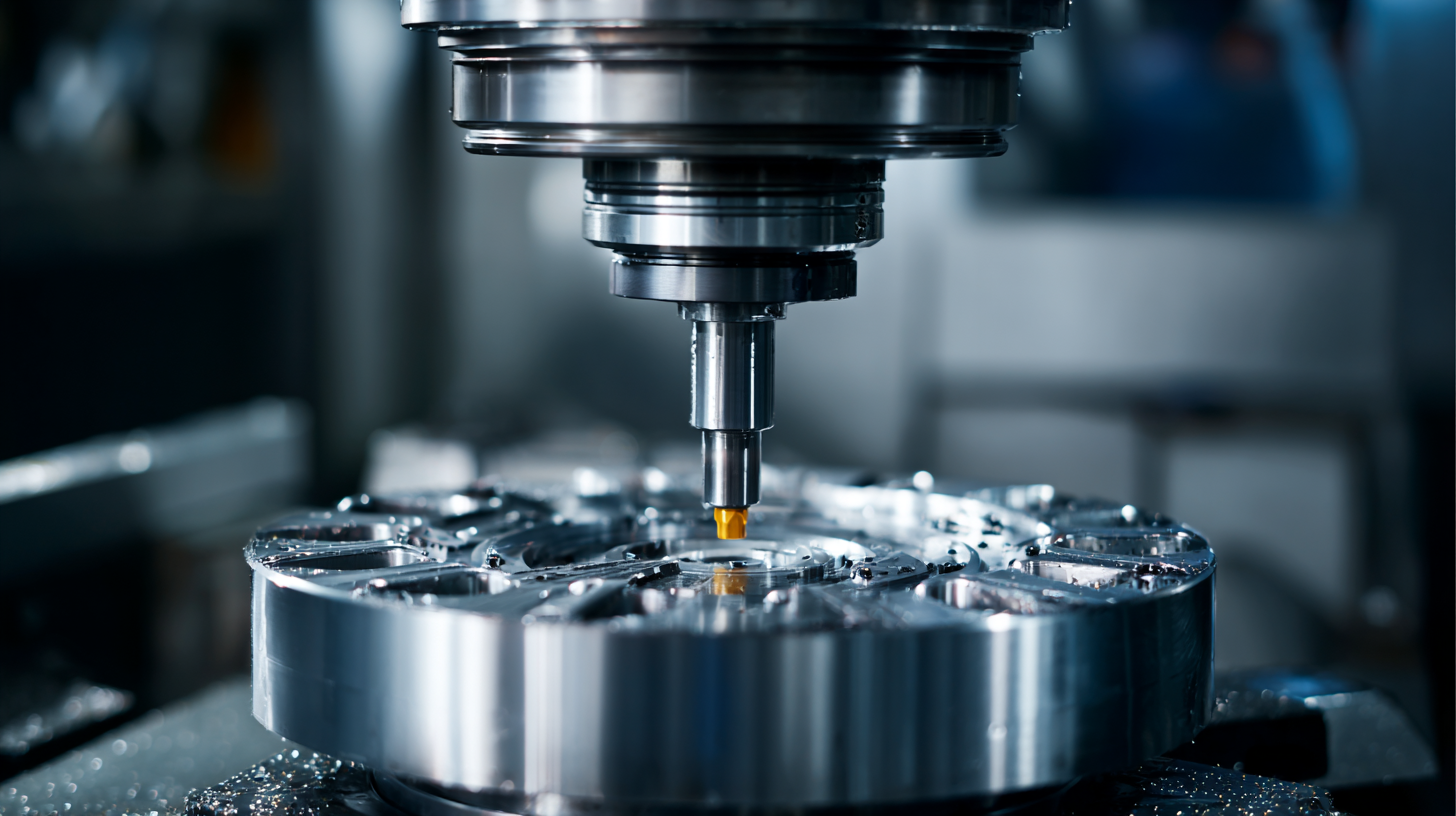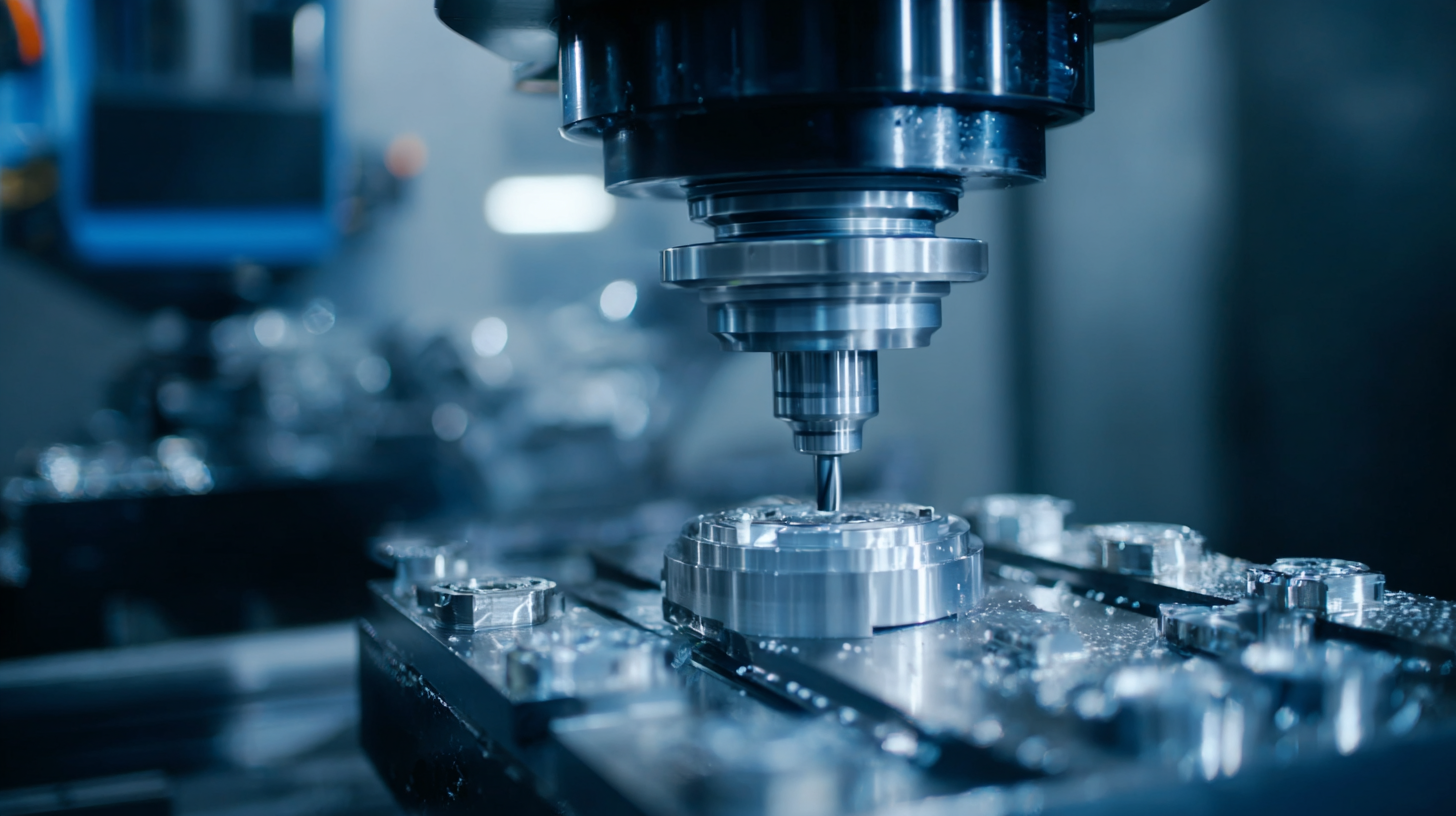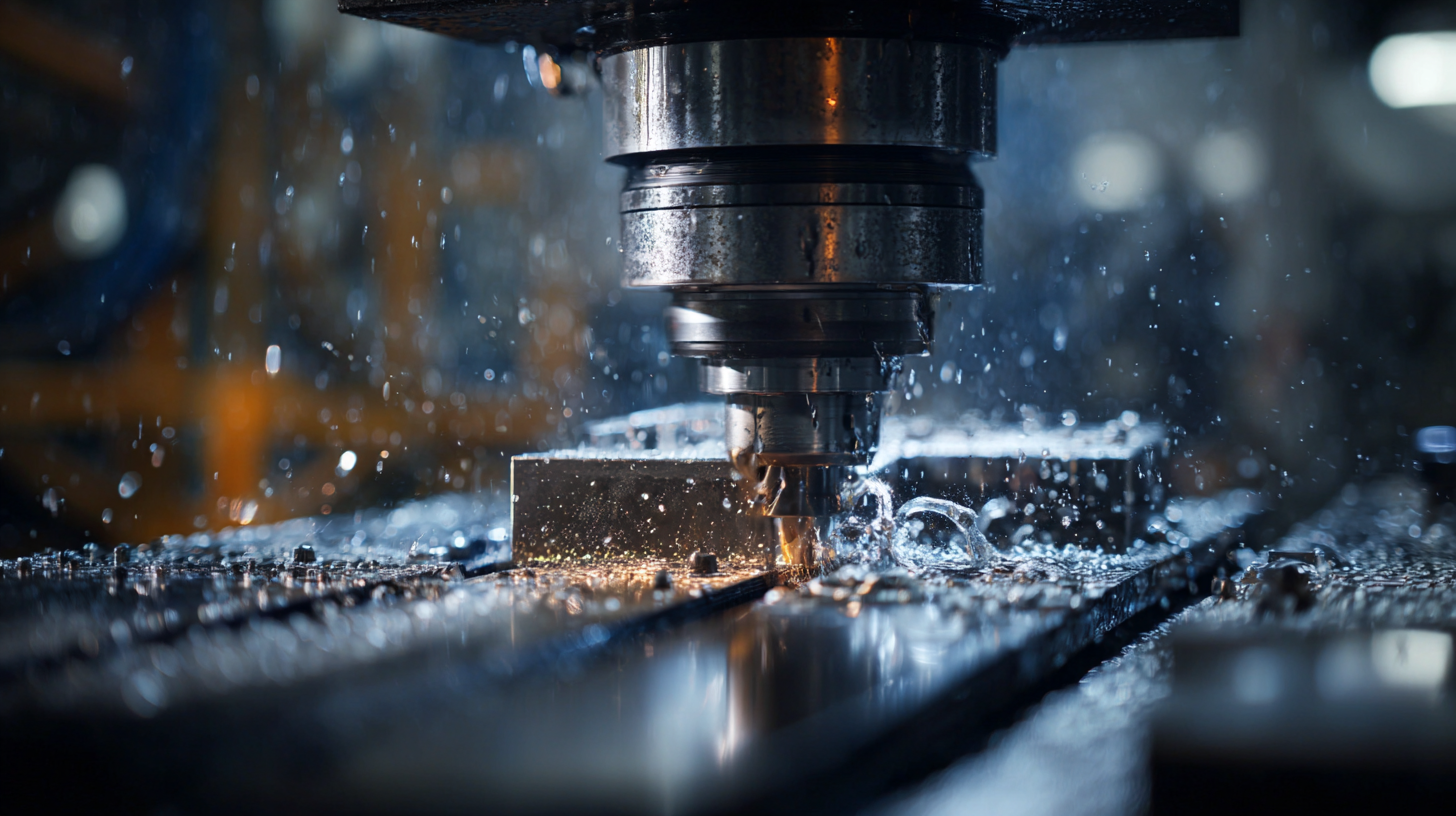METROM’s
Blog
METROM’s
Blog
The Future of CNC Machines: Revolutionizing Global Manufacturing and Precision Engineering
As we stand on the brink of a new era in manufacturing, CNC (Computer Numerical Control) machines are poised to revolutionize the industry in unprecedented ways. According to a report by MarketsandMarkets, the global CNC machine market is projected to reach USD 117 billion by 2026, growing at a compound annual growth rate (CAGR) of 6.0% from 2021. This profound growth underscores the increasing reliance on precision engineering and automated production processes. The integration of advanced technologies such as artificial intelligence and the Internet of Things is further enhancing the capabilities of CNC machines, enabling manufacturers to achieve higher accuracy and efficiency while reducing operational costs. As industries worldwide adapt to these innovations, CNC machines will undoubtedly play a pivotal role in shaping the future of global manufacturing, driving both productivity and quality to new heights.

The Rise of CNC Machines: Transforming the Manufacturing Landscape
The modern manufacturing landscape is undergoing a significant transformation, largely driven by the rise of CNC (Computer Numerical Control) machines. As industries increasingly adopt digitalization and AI technologies, CNC machines are at the forefront of enhancing precision engineering. Recent reports estimate that the global machine tools market is projected to reach USD 169.47 billion by 2025, highlighting the rapid growth and innovation in this sector. The integration of IoT and AI into CNC machining processes is revolutionizing the way manufacturers operate, enabling them to boost efficiency while maintaining high-quality standards.
As we look to the future, it is essential for companies to embrace these advancements. Implementing smart manufacturing practices can streamline operations and create a more responsive production environment. Here are a few tips:
- Firstly, invest in training for your workforce to ensure they are equipped to handle advanced CNC technologies.
- Secondly, assess current processes and identify areas where AI can optimize production cycles or quality control measures.
- Lastly, stay informed about emerging trends and innovations to remain competitive in this rapidly evolving market.
With the capabilities of next-gen CNC machines, manufacturers stand on the brink of a technological revolution, reshaping the future of global manufacturing and precision engineering. Adopting these technologies is not just an option but a necessity for those looking to thrive in the competitive landscape ahead.
Key Challenges Facing CNC Machining Companies in 2023
As we step into 2023, CNC machining companies are navigating a landscape filled with formidable challenges that threaten to impact their operations and growth. One of the most pressing obstacles is the rapid pace of technological advancements. As machines become more sophisticated, companies must continuously invest in upgrading their equipment and training their workforce. This requires a balance between adopting cutting-edge technologies and managing operational costs, which can be a daunting task for many manufacturers.

Another significant challenge is the skilled labor shortage in the manufacturing sector. With experienced machinists retiring and the younger workforce showing less interest in traditional manufacturing careers, companies are struggling to find qualified personnel. This shortage not only affects production efficiency but also hampers innovation as less experienced workers may lack the expertise required to handle advanced CNC machines effectively. Companies must then focus on developing comprehensive training programs and outreach initiatives to attract new talent and reinvigorate interest in precision engineering careers.
Lastly, global supply chain disruptions continue to pose a risk for CNC machining firms. Fluctuations in material availability and rising costs can significantly hinder production schedules. As companies aim to safeguard against these disruptions, they are looking to diversify their suppliers and adopt more localized sourcing strategies. This shift not only helps mitigate risks but can also enhance responsiveness to market demands, leading to improved operational resilience in a challenging economic climate.
Impact of Industry 4.0 on CNC Machine Efficiency and Production Costs
The impact of Industry 4.0 on CNC machine efficiency and production costs is profound, driving significant enhancements in productivity across various sectors. As organizations integrate smart manufacturing technologies, the CNC machine market is projected to reach USD 170.4 billion by 2033, reflecting an impressive CAGR of 9.80% from 2024. This growth is indicative of the sector's shift towards more sophisticated, data-driven processes that optimize operations and reduce waste.
Moreover, the application of artificial intelligence is beginning to redefine precision manufacturing, enabling predictive maintenance and real-time monitoring. This evolution is essential, as companies adopt advanced analytic techniques to classify and predict potential manufacturing challenges, ensuring operational continuity. By harnessing these technologies, businesses not only improve their efficiency but also significantly lower production costs, making them more competitive in the global market. The digital transformation in CNC machining underscores the relentless march towards a smarter, more interconnected manufacturing landscape.
The Future of CNC Machines: Revolutionizing Global Manufacturing and Precision Engineering - Impact of Industry 4.0 on CNC Machine Efficiency and Production Costs
| Dimension | 2020 | 2021 | 2022 | 2023 |
|---|---|---|---|---|
| CNC Machine Efficiency (%) | 60 | 65 | 70 | 75 |
| Average Production Cost per Unit ($) | 100 | 95 | 90 | 85 |
| Energy Consumption (kWh/unit) | 5.0 | 4.8 | 4.5 | 4.2 |
| Average Downtime (%) | 20 | 18 | 15 | 12 |
| Output per Hour (Units) | 50 | 55 | 60 | 65 |
Emerging Technologies: How AI and IoT are Reshaping CNC Operations
The integration of Artificial Intelligence (AI) and the Internet of Things (IoT) is significantly transforming CNC (Computer Numerical Control) operations, leading to unprecedented advancements in global manufacturing and precision engineering. According to a recent report by Markets and Markets, the global CNC market is projected to reach $117.91 billion by 2026, driven by the increasing need for automation in manufacturing processes. AI enhances CNC machines through predictive maintenance, allowing for real-time analytics that predict equipment failures before they occur, thus minimizing downtime and maximizing productivity.
The adoption of IoT technologies further enhances CNC operations by enabling seamless connectivity between machines and systems. A study by Statista indicates that the number of connected devices worldwide is expected to reach 30 billion by 2025, providing manufacturers with vast amounts of data to analyze and optimize their operations. This connectivity facilitates smarter manufacturing, where machines can communicate with each other, share workload, and adjust processes dynamically to improve efficiency. As AI and IoT converge, the manufacturing landscape is evolving, marking a new era of innovation that promises to revolutionize precision engineering.
The Role of Precision Engineering in Enhancing Product Quality and Consistency
In today's fast-paced manufacturing landscape, precision engineering plays a pivotal role in enhancing product quality and consistency. CNC machines, known for their unparalleled accuracy and efficiency, are at the forefront of this technological evolution. These machines minimize human error by adhering strictly to programmed specifications, resulting in products that meet or exceed industry standards. This high level of precision not only reduces waste and rework but also ensures that each component fits seamlessly within larger assemblies, which is essential for industries such as aerospace, automotive, and medical devices.
Moreover, the integration of advanced software and analytics within CNC machining processes has allowed manufacturers to monitor and optimize production in real-time. This capability significantly enhances quality control, as potential issues can be identified and rectified before they escalate into larger problems. Consistency in manufacturing is vital for maintaining brand reputation and customer satisfaction; thus, precision engineering environments become essential for businesses striving to uphold these values. By embracing precision engineering techniques through CNC technology, manufacturers can elevate their output, boost efficiency, and ultimately deliver superior products that cater to evolving market demands.


